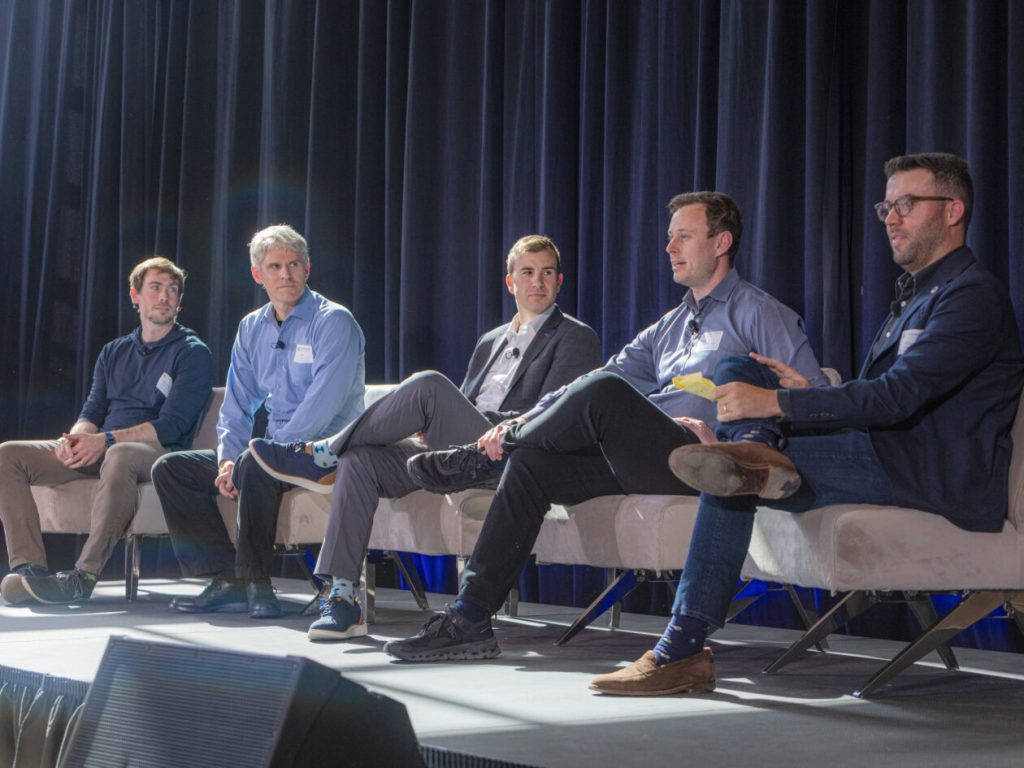AI in Seattle Biotech: Promise Meets Reality
Seattle’s biotech sector is experiencing a significant AI revolution, with dozens of companies now leveraging artificial intelligence to design innovative medical treatments. At a recent industry conference hosted by Life Science Washington and Madrona in downtown Seattle, a panel of leading scientists and founders offered a nuanced perspective on AI’s role in drug development. While enthusiasm about AI’s capabilities runs high, these experts emphasized the importance of tempering expectations with scientific rigor. As Jamie Lazarovits, CEO of Archon Biosciences, cautioned, “There is some over hype on the breadth and the depth of the capabilities of some of these AI models.” Yet despite these cautions, Erik Procko of Cyrus Biotechnology highlighted the remarkable progress, noting, “What was science fiction 15 years ago is now reality.” This tension between AI’s transformative potential and the need for realistic assessment formed the central theme of the conference as Seattle cements its position as a hub where cutting-edge computation meets biological innovation.
The conference showcased four Seattle-based companies at the forefront of AI-powered drug development, each tackling different challenges in the field. Archon Biosciences, which emerged from stealth last year with $20 million in financing, is designing proprietary protein structures called Antibody Cages (AbCs) that help antibodies target specific cells while avoiding others. Cyrus Biotechnology, a decade-old company with $36.6 million in funding, focuses on designing drugs that won’t trigger unwanted immune responses—a challenge known as immunogenicity. Outpace Bio, founded in 2021 and backed by an impressive $200 million, engineers proteins to enhance T-cell therapies for solid tumors, which represent 90% of cancers and have proven particularly resistant to current treatments that often fail within a month. Completing the quartet is Talus Bioscience, launched in 2020 with nearly $20 million in funding, which targets transcription factors—proteins that regulate gene expression—specifically focusing on those that activate cancer-driving genes. These companies represent different approaches to harnessing AI’s potential in addressing complex biological challenges that have historically resisted conventional solutions.
A key principle emphasized by the panelists was that AI should augment human researchers rather than replace them. Marc Lajoie of Outpace Bio used a striking metaphor, comparing AI tools to the robotic exoskeleton from the sci-fi film Aliens: “It makes the researcher better. We’re not trying to replace the researcher.” This perspective frames AI as a powerful tool that expands human capabilities rather than an autonomous system that renders scientists obsolete. The analogy captures the synergistic relationship between human insight and computational power that these biotech leaders are cultivating. By enhancing researchers’ abilities to explore complex biological spaces, generate hypotheses, and analyze massive datasets, AI allows scientists to focus their expertise on interpretation, experimental design, and the creative leaps that machines still cannot make. This collaborative approach maintains the crucial human element in scientific discovery while leveraging computational strengths.
Despite AI’s impressive abilities to generate potential drug candidates and predict protein structures, the panelists stressed that computational predictions must ultimately face experimental validation. Lazarovits highlighted this critical junction between digital promise and biological reality: “Whenever we try to adopt new models, new AI methods, you can become incredibly excited by having this silicon validation. But the reality is, is what do you actually validate in the wet lab?” This represents a fundamental challenge in AI-driven drug development—the gap between what looks promising on a computer and what actually works in cells, tissues, and eventually, human patients. The biotech companies represented at the panel are navigating this transition carefully, using AI to accelerate and improve the discovery process while maintaining rigorous experimental validation protocols. This balanced approach acknowledges both AI’s strengths in generating novel candidates and its limitations in predicting the complex realities of biological systems.
The experts identified clinical trials as the most significant bottleneck in drug development—an area where AI’s impact has yet to be fully realized. While AI excels at designing new molecules and predicting their properties, testing these candidates in human subjects remains time-consuming, expensive, and fraught with uncertainty. Lajoie suggested that AI could transform drug development by enabling “smaller, better powered clinical studies,” particularly by developing multi-functional drug candidates with higher chances of success. This represents one of the industry’s most significant challenges: translating AI’s computational efficiency into clinical trial efficiency. The ability to predict which drug candidates will succeed in humans before expensive trials begin would revolutionize the development process, dramatically reducing costs and accelerating the delivery of new treatments to patients. While this remains aspirational, the Seattle biotech companies are actively working toward this goal.
As Seattle’s biotech sector continues to integrate AI into drug development workflows, a central question remains unresolved. As Procko eloquently framed it, “What is it that AI is letting us do now to make new drugs that was simply impossible to make before? How is it being a game changer?” This query captures the industry’s current state—poised between transformative potential and the search for definitive breakthroughs that fundamentally change what’s possible in medicine. While AI has undoubtedly accelerated certain processes and expanded the universe of potential drug candidates, the panel suggests the field is still awaiting AI’s true “killer app” in drug discovery. This reflective stance demonstrates the maturity of Seattle’s biotech community, which balances enthusiasm for AI’s capabilities with clear-eyed assessment of its current limitations. As these companies continue pushing the boundaries of what’s possible at the intersection of computation and biology, they’re helping define how AI will ultimately transform medicine—not through hype, but through methodical progress validated in the laboratory and, eventually, in improved patient outcomes.















